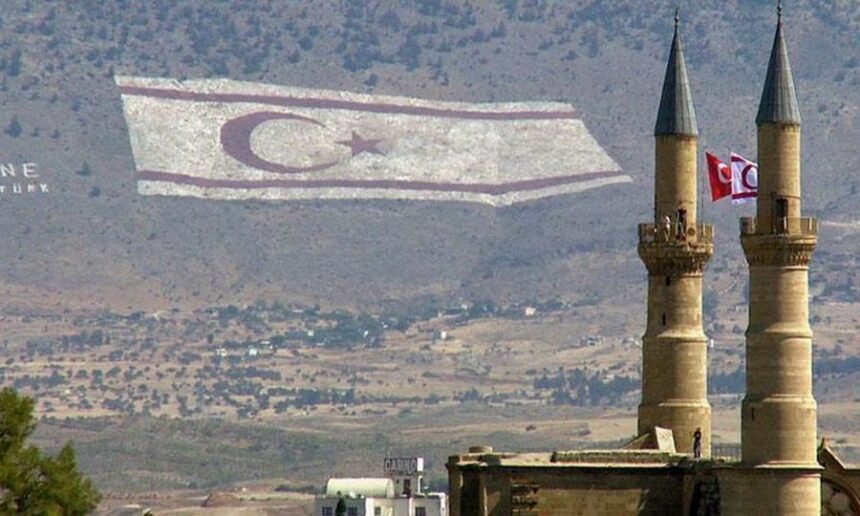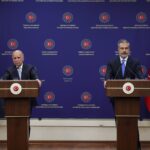Summary by News About Turkey (NAT):
In the article “Cyprus: Stuck in Limbo” published by Foreign Policy, the ongoing division of Cyprus and the geopolitical tensions between the Turkish Republic of Northern Cyprus (TRNC), Turkey, and Greece are explored.
The article discusses the long-standing split of Cyprus, which has left a Turkish Cypriot north and a Greek Cypriot south. The separation arose as a result of a conflict in 1974, triggered by a coup led by Greece and the subsequent military intervention by Turkey.
The article talks about Cyprus’s current state of political and diplomatic uncertainty and its lack of a clear path for reunification. Turkey is the sole entity that recognizes the TRNC, which was established by the Turkish Cypriots. The United Nations and the European Union, as well as the international community, regard it as a constituent of the Republic of Cyprus, which is predominantly Greek Cypriot.
Cyprus is the focal point of the ongoing geopolitical tensions between Greece and Turkey, which are highlighted in the article. The animosity between the two nations is perpetuated by disputes regarding maritime boundaries, petroleum resources, and military presence.
The article examines the impact of the division on everyday life and the stability of the region. The split has a profound influence on Cyprus’s economic and political terrain. The northern region continues to rely on Turkey for its economic sustenance, whilst the southern region is a constituent of the European Union.
Over the years, several efforts have been undertaken to reunify Cyprus, including UN-mediated discussions and other international actors. Nevertheless, these endeavours have been significantly impeded by the peace process’s lack of progress and disagreements regarding critical issues.
The article also examines the prospective outcomes for Cyprus, contemplating several scenarios for either resolving the conflict or maintaining its divide. The piece underscores the necessity for a fresh approach to diplomatic involvement and mutual concessions from both Greek and Turkish Cypriots, as well as their respective governments.
In summary, the article offers a thorough analysis of the intricate and long-lasting problems associated with the Cyprus conflict and its wider consequences for regional relationships.
Read more here or below.
Cyprus Is a Divided Island Stuck In Perpetual Limbo
Ahmet Ozgunle, a barista in Nicosia, Cyprus, resides in a divided nation where it was impossible to cross the border for half of his existence.
Since 1974, Cyprus has been divided into two distinct entities: the Republic of Cyprus, which is a member of the European Union, and the Turkish Republic of Northern Cyprus, which is not recognized by any other nation except Turkey.
The United Nations has been responsible for the management of the border on the island since the 1960s, when ethnic violence between Greek and Turkish Cypriots erupted. The organization has maintained a peacekeeping function.
Cyprus has been under a state of division since 2003, with limited border crossings permitted. Subsequently, transients have traversed desolate areas devoid of human activity in abandoned regions.
The separation has transformed into a placid environment, nonetheless, individuals yearn for their sense of nationalism. Cyprus has been in a state of uncertainty for 50 years, appearing either as a successful outcome that is actually a failure, or as a failed outcome that is actually a success.
In 1960, Cyprus achieved independence from Britain; however, religious and ethnic tensions escalated, culminating in the “Turkish invasion” of 1974. Turkey acted aggressively against Greek attempts to include Cyprus, a policy that was disguised as “union.” Britain chose not to intervene in order to safeguard NATO stability against the Soviet Union and instead relied on U.N. policing.
Cyprus, a nation located in the Middle East, has garnered international attention for its prominent street art and cultural analysis. In 1999, the Republic of Cyprus was permitted to renounce reconciliation as a requirement for EU membership; however, the EU’s enlargement commissioner, Günter Verheugen, decried the decision.
Cyprus continues to be in a state of uncertainty, with a fundamental dilemma deeply ingrained in its nature. Other territories, such as Hong Kong, Northern Ireland, Palestine, and Taiwan, exist as transitory solutions with inherent existential challenges.
These locations employ “peace” as a tenuous hope, employing it to conceal suffering and foster generational complacency through complacency. Street art in Southern Nicosia depicts the European Union as a saint, an enclosed heart of an angel, and a soldier. The soldier symbolizes both the martyrdom of St. Sebastián and the famous question of “to be or not to be?” from Hamlet, representing solidarity.
Cyprus is located at a considerable distance from an active war zone, nonetheless, its residents have resorted to using uneasy laughter and sarcastic humour as a means of dealing with the situation. Located in southern Nicosia, there is a kebab shop that is designed to resemble Checkpoint Charlie, the notorious meeting point between West and East Berlin. The restaurant is surrounded by lush vegetation and is situated under a clear blue sky. Cypriots have resorted to using anxious laughter and biting humour as a therapeutic method to maintain beauty and positivity, especially during times of crisis. Following the breakdown of peace negotiations held in Switzerland in 2017, Cyprus is currently experiencing its longest time without any active efforts to achieve peace.
The diplomatic landscape has undergone changes since the Republic of Cyprus became a member of the European Union in 2004. Ankara considers international acknowledgment of its claim to Northern Cyprus as an essential condition for engaging in peace negotiations. Ultimately, peace may be achieved not through bureaucratic or diplomatic endeavours, but rather as a result of a peculiarly 21st-century phenomenon: migration.
In the last ten years, Northern Cyprus has undertaken an initiative to construct institutions and attract a greater number of international students. The endeavour has achieved its intended outcome, but it may have surpassed expectations. In Northern Cyprus last year, students from Africa, the Middle East, and Asia surpassed the number of university students from Turkey. A significant number of these students, especially those from African nations, are currently trapped in the region, despite encountering pervasive prejudice.
The Kremlin has initiated mobile consular services in the northern region to cater to the increasing number of Russian migrants and tourists. Migrants frequently experience a state of uncertainty and confinement, caught in exploitative labour arrangements or bureaucratic ambiguity. There has been a significant increase in anti-immigrant sentiment, resulting in the arrest of protestors, physical assaults on Asian delivery drivers, and acts of vandalism targeting immigrant-owned establishments.
The fragility of Cyprus’s peace in the midst of regional tensions is a manifestation of the fact that, even after 64 years of independence, the island remains susceptible to the influence of more powerful nations.
Read the full article here written by Richard Morgan



